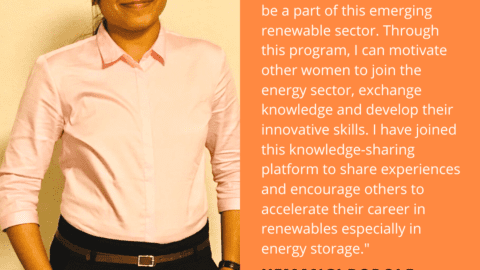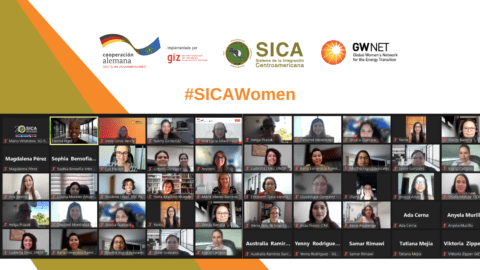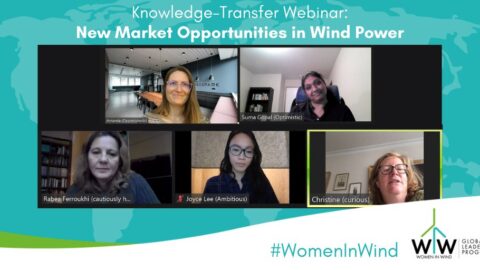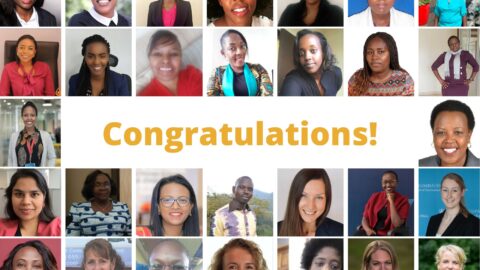GWNET brings you the 8th instalment of the “Meet the Women in the Energy Transition” series which celebrates the work and achievements of the women who are part of GWNET’s 3/2020 Mentoring Programme. This mentoring programme is made up of 26 mentee-mentor tandems, with mentees from over 20 countries. Meet GWNET mentee, Elena Chvanova, a consultant and project manager working at Dr. Langniß – Energie & Analyse in Germany.
1) Tell us a little about yourself. What do you love most about what you do?
I have been working in the energy sector for almost 10 years, more than 4 years out of them in sustainable energy. My professional career includes various stations like the Russian Energy Ministry, the Russian Energy Forecasting Agency, and a German utility.
Since 2016 I have worked at the consultant company Dr. Langniß – Energie & Analyse. As a consultant helping to pursue the energy transition all over the world, I am fascinated by the ever-growing transformation of this sector and the ambitions of national governments on the way to a sustainable future. I am again and again challenged by the variety and complexity of tasks and happy to develop skills and gain knowledge every day.
 2) What were your goals when you started working in sustainable energy? Have these evolved?
2) What were your goals when you started working in sustainable energy? Have these evolved?
My primary goal was to contribute to the most promising segment of the energy sector. I wanted to learn how to help both developing and developed countries to reach and enhance their targets in that field. Therefore, I joined the team of my current employer, whose main focus is on supporting energy sector development in terms of renewable energy, digitization of energy systems and sustainability.
I gained experience on how to develop a facilitating regulatory environment, promote investments and assess feasibility and profitability of sustainable energy projects. Now I am looking for new projects on the national, regional and international level, being ready to take responsibility in rendering consultancy services, project management and leadership.
3) How has the COVID-19 pandemic impacted the professional goals you set out for the year?
The pandemic did not affect my plans that much, since starting from May I am on maternity leave. But it made it clear to all of us that our job and communication can be easily organized digitally and that the impossibility to work face-to-face does not compromise our performance.
I think the key learning from the pandemic is to be flexible and not trapped in the standard working processes. Especially in the energy sector which undergoes rapid transformation right now, we should always think about how to increase the efficiency of our operations and be able to adapt them to changing conditions.
4) What are the opportunities for sustainable energy growth in your country?
The sustainable energy transition is high on the agenda of the German government, though for some, this development seems too slow. In any case, the expansion of renewable energy for electricity generation has seen impressive growth during the last decades, and the heating and transport sector have to catch up on it rapidly, in order to bridge the gap to reach sector-specific targets of the government.
With the phase-out of nuclear (enforced in 2022) and coal power (envisaged in 2038) the concepts of compensation of these capacities through renewable energy have to be reconsidered. The issue of optimal development and integration of the growing share of renewables into the energy system comes to the foreground. Many related topics such as digitization of the energy system, an increased need for flexibility and storage, and new business models for traditional market players, just to name a few, are gaining momentum and will define future regulatory environment and the energy market setting in Germany.
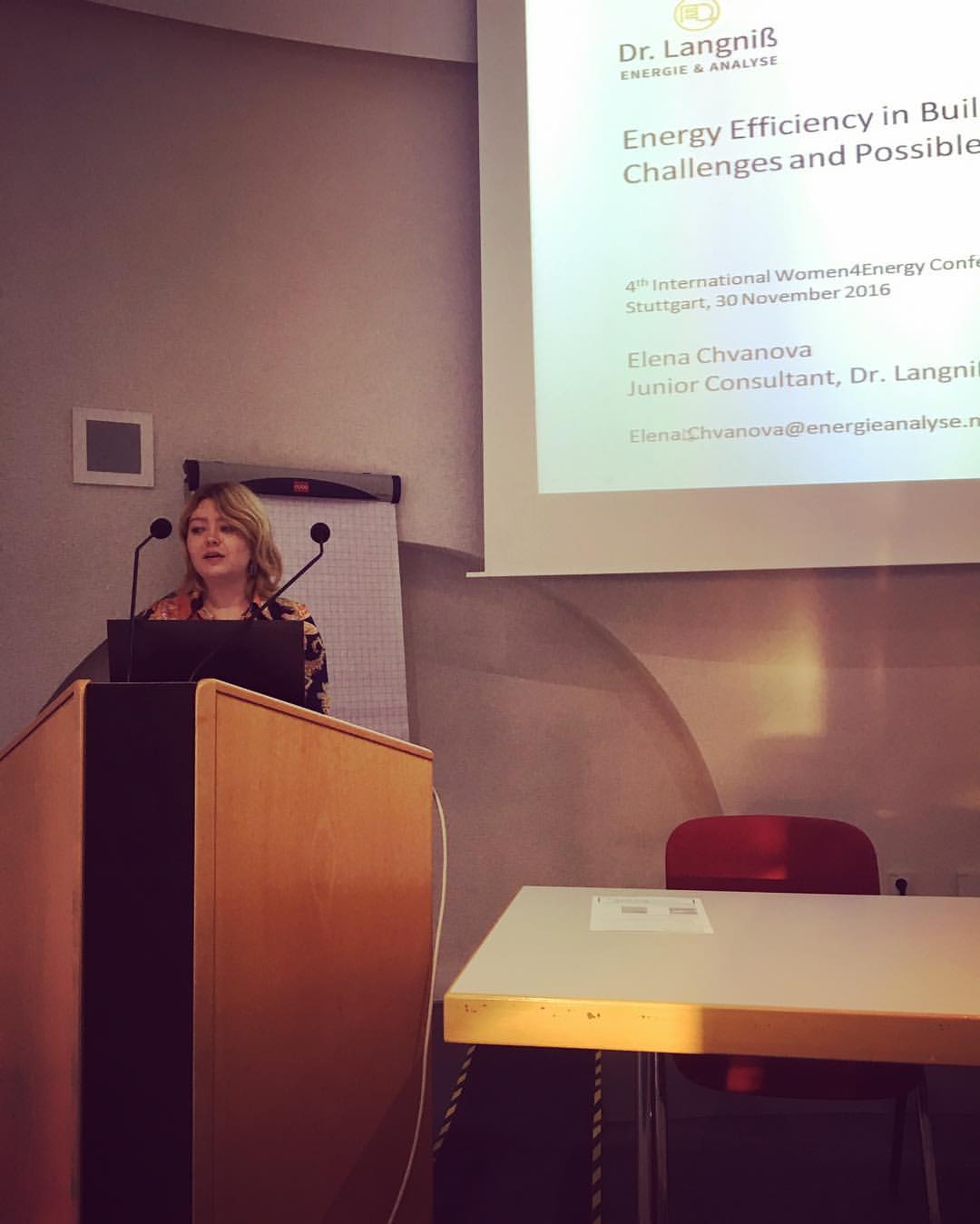
5) What challenges have you faced in the sector? Can you tell us how you overcame (or are overcoming) this challenge(s)?
Even in a progressive (in terms of gender equality) country such as Germany, the share of women working in the energy sector is quite low. It can be observed on the sector-specific conferences: the share of female participants does not exceed one fourth. I would find it better to have more female role models as well as exchange with other female professionals. To have more networking opportunities, I registered with GWNET and regularly take part in events like the annual Women4Energy conference held in Stuttgart by Steinbeis-Europa-Zentrum.
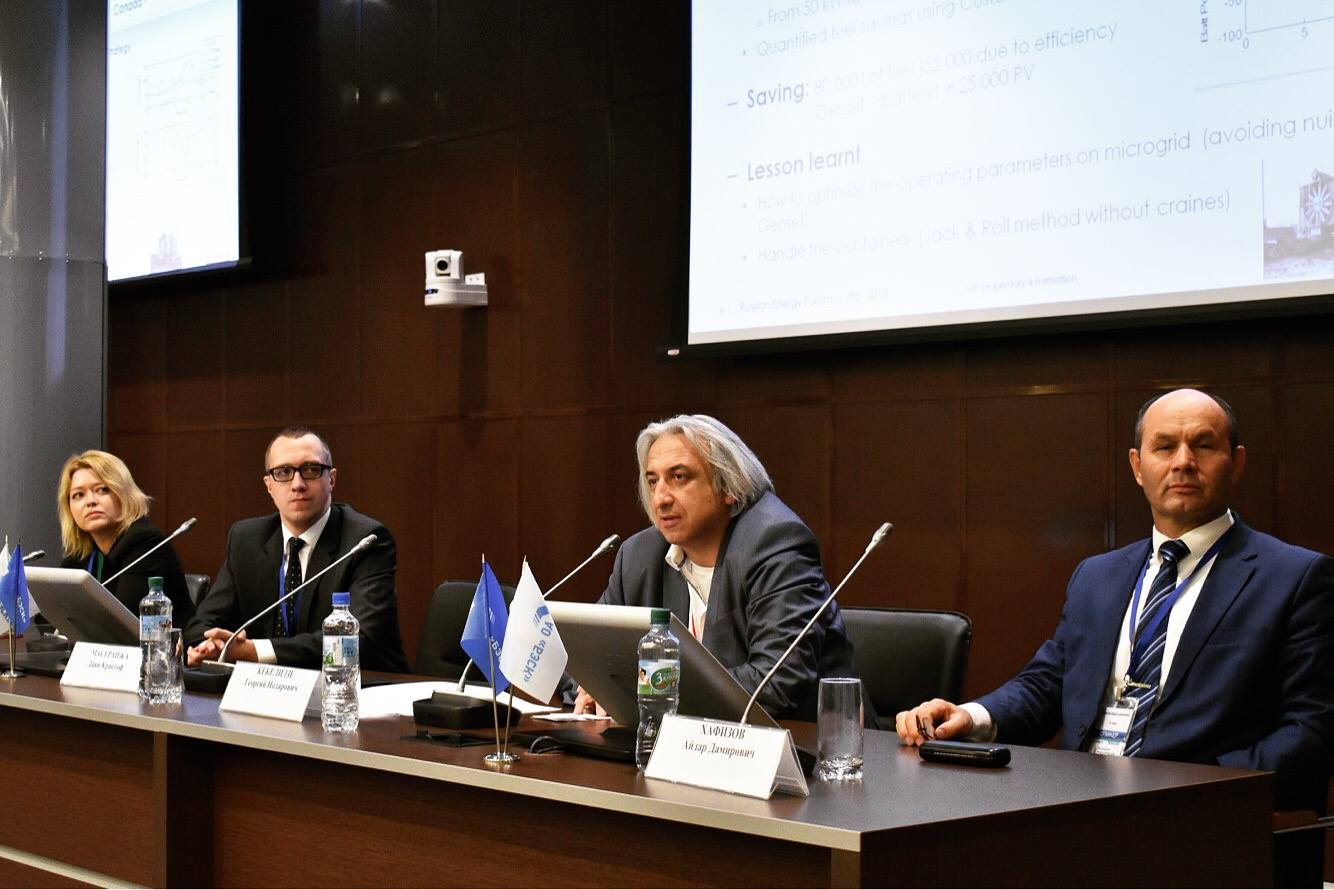
6) Why did you join the GWNET Mentorship Programme? What do you hope to achieve?
I am very motivated to specialize and acquire further knowledge and experience in the integration of renewable energy into energy systems, digitalization of the energy sector and the transition to sustainable energy worldwide.
My goal is to develop my leadership skills and deepen my research capabilities to offer the best quality to German and international customers of the consulting company where I work. For all of this, guidance and navigation from experienced colleagues is very valuable. Also, it could bring an additional push to my career and demonstrate opportunities which I am not aware of.
7) What advice would you give to women hoping to join the sustainable energy sector?
If you want to work in the sector which contributes to climate protection, creates the energy system of tomorrow with radically reduced emissions and offers you challenging tasks every day, it is the right place for you. So, come and join us!
Read more about GWNET’s mentoring programmes here.



